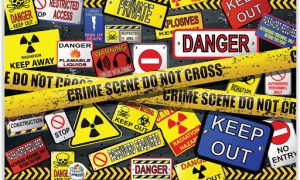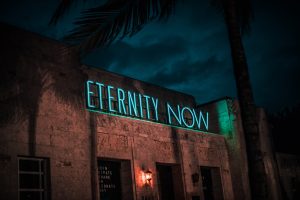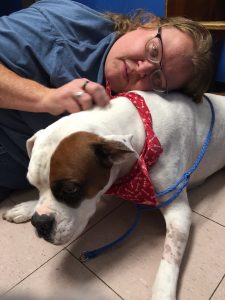Kaleidoscope
Frumpy
freckled, four-eyed,
forty and forgotten,
broken but beautiful, still she
S P A R K L E S
(A cinquain is a five line poem featuring a syllable count of 2/4/6/8/2, respectively.)
24 Poems ~ 24 Hours
I’ve been on a journey of rediscovery the past decade or so, trying to remember, relearn, and even reinvent myself. Just who the heck did I think I was? Better yet, who did I want to be? Although the answers have evolved over the past few years — like I truly believe I have done — one thing has always remained the same: my love of writing. This is the one day every year that I am totally selfish and make things literally ALL ABOUT ME. And I do that unapologetically! So here I am, toes on the starting line, heart pounding, mind racing, anxious to embark on my fourth consecutive Poetry Marathon. It may not be easy, but it will always be worth it. Hope to see you at the finish line! “Sometimes you’re ahead, sometimes you’re behind. The race is long and in the end, it’s only with yourself.” — Sunscreen, Baz Luhrmann

Frumpy
freckled, four-eyed,
forty and forgotten,
broken but beautiful, still she
(A cinquain is a five line poem featuring a syllable count of 2/4/6/8/2, respectively.)

Wear your masks!
Wash your hands!
Don’t stand so
close to me
We’re alone
together
(A tricube is made up of three stanzas, with each stanza being composed of three lines, and each of those lines is made up of three syllables.)
Grief
is like
a rusty chain
wrapped tightly ’round
a tree
trunk,
slowly
sinking deeper
into the wood,
weighing heavy on
our hearts,
suffocating,
stealing
the light
from our eyes
and the oxygen
from our
lungs,
until
one day
we awake, only
to discover we
can breathe
again,
for
the chain
has grown to
become a permanent
part of
us.
(A hay(na)ku is a three line poem where the only rule is that the first line is made up of one word, the second line of two words, and the third line of three words. A reverse hay(na)ku is a three line poem composed in the opposite manner, so line one would be three words, line two is two words, and line three would be just one word. During the 2019 Poetry Marathon, I combined these two styles to create what I called the “mirror hay(na)ku”. This time, I have taken things a step further with the “Hall of Mirrors Hay(na)ku”, which is composed of five separate mirror hay(na)ku stanzas.)

Eternity now, why would you wait,
when forever could start today?
You could sing with the angels,
drift away on a cloud,
grab a golden harp
and learn to play.
Lord, please show
me The
Way.
(A nonet consists of nine lines, with a syllable counts as follows: 9/8/7/6/5/4/3/2/1, so the poem appears to ‘disappear.’ This poem was inspired by selecting a random prompt, which was originally posted during Hour Three of the 2017 Poetry Marathon, asking you to select one of several provided images and use it as a starting point for your poem. I chose the image above which says “Eternity Now.”)
(A haiku is a three line poem with the syllable count 5/7/5.)
(A tanka is a five line poem with the syllable count 5/7/5/7/7. This poem was inspired by true events. I once was trying to type the word “cool” while texting and driving and mistakenly typed “Ciio” instead. My phone, being the smartphone that it was, instantly replaced my typo with “McPoop,” a word that I had never in my life typed prior to that day. This poem also inspired by one of my favorite guilty pleasures, the ever so tasty mystery meat that makes up the McRib.)
Twenty-four hours have come to pass
I sit and stare
Through bloodshot eyes
Put pen to page
This adventure in expression
Has shown me much
About myself
And how I think
Losing sleep, forced isolation
In conclusion,
Was it worth it?
Bottom line, YEP.
(How appropriate to wind down a timed challenge with a minute poem! Minute poems feature exactly sixty syllables split among three stanzas. Each stanza follows a syllabic count of 8/4/4/4. A traditional minute poem has a specific rhyme scheme of aabb, ccdd, eeff and must be written in strict iambic pentameter. I chose the tired person’s non-traditional version, which releases me from those requirements.)
I climbed out of bed and fumbled through the hallway to the bathroom,
rubbing my sleepy eyes with my tiny fists, even though Momma had told me not to.
I lifted the lid and lowered my Strawberry Shortcake Underoos to my ankles,
grabbing hold of the sink to help hoist my not-quite-three-year-old booty up on the potty.
As the golden stream started to ebb and flow, curiosity got the best of me,
as it so often does with children. I opened my eyes and looked in the bathtub to my right,
and screamed like the little girl that I was!
There was a dead man in my bathtub!!
Fully dressed in a plaid western shirt and faded jeans, he lay semi-sprawled about the tub,
his arms and legs dangling freely over the porcelain edges, head tilted back against the faucet,
eyes closed tight, mouth half open though no sound came out.
Momma rushed in and shook him back to life. Turns out, Clifton wasn’t dead,
only drunk.
Identical twin boys plagued Mrs. McCurdy, my kindergarten teacher.
Danny and Donny Barlow.
The school saw fit to separate them, leaving Danny in the morning class,
while Donny attended afternoons with us. Soon, he was my boyfriend.
We stole a kiss under the table when we thought no one could see us.
Summer passed, and another fall. Rain flooded the streets of our hometown,
leaving drainage ditches to look like swimming pools. Danny dove in…
and never came out.
Holding Momma’s hand as we stood at his gravesite, I wondered why I wasn’t crying
like everyone else around me. I overheard my mother talking to Ms. Barlow and learned the twins’
little brother Billy had been hit by a Mack truck and broken his little leg. Spotting a familiar face,
I turned loose of Momma’s grip and wandered across the grass where Mrs. McCurdy stood.
I noticed her eyes were dry like mine. She smiled down at me and hugged my neck.
“It’s okay not to cry,” she said softly, squeezing my hand as she answered my unasked question.
Momma always told us stories of what a wonderful woman Edna Earl, our great-Grandma Burden was.
But the woman we knew growing up was different. Stricken by dementia and confused and often angry,
we only saw the cranky grouchy side of her. She didn’t like it when we were loud, or had friends over.
Little girls weren’t supposed to play with little boys. We were supposed to be seen but not heard whenever our great-grandmother was awake. Saturday nights at 7pm were meant for Gunsmoke.
I remember Momma crying on the phone with Granny. I was ten, my baby sister was eight. Dad told Momma to do what she had to do. He dropped her off at the hospital while we waited in the car.
Then he drove us across town to Putt-Putt. We dumped roll after roll of quarters into Rampage as the three of us sat there playing Godzilla, King Kong, and a third mega monster I can’t recall, bouncing from city to cartoon city, smashing skyscrapers and helicopters and anything else in our paths.
Edna Earl was called home that night, but all I remember are screen shots of animated wreckage Dad and Rachel and I had left behind.
(This poem was inspired by prompt for hour 23, to create a poem about your childhood in one to five numbered parts.)
Hour twenty-two.
Woohoo, we’ve almost made it!
Only two to go…
(A haiku is a three line poem with the syllable count of 5/7/5.)
My gentle giant,
Ninety pounds of fun and fur,
You kept me laughing.
Your silly smile soothed my soul.
You left pawprints on my heart.


(A tanka is a five line poem with the syllable count 5/7/5/7/7. This poem was inspired by the Hour 21 prompt to write about an animal.)